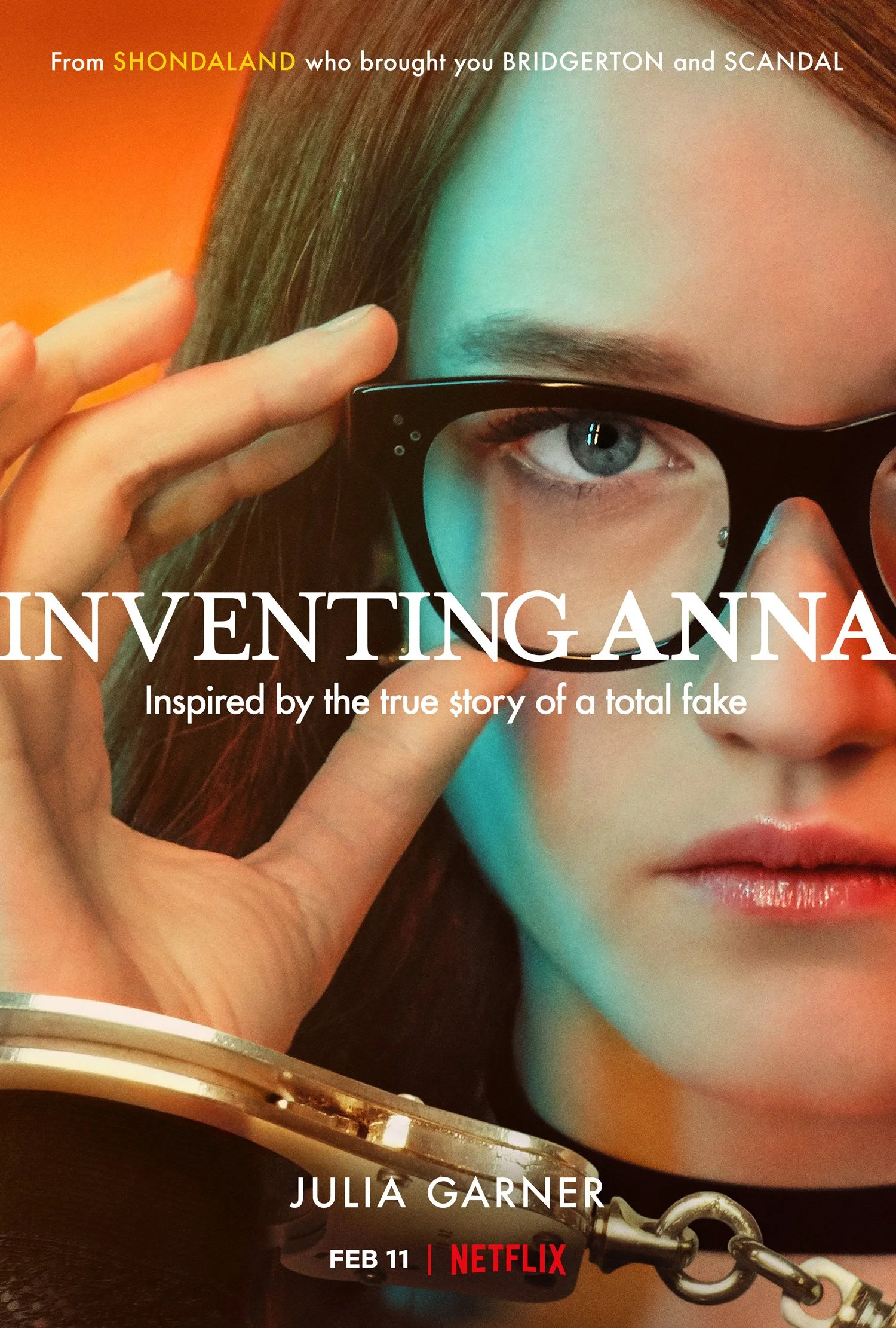What we can learn from “Inventing Anna,” by Shonda Rhimes
I haven’t even finished the show yet, but I couldn’t resist writing about it
Reading time: 5 min
Intro
“This whole story is completely true. Except for all the parts that are totally made up.”
Believe it or not, I’m writing this article like a madman between commitments despite the fact that I had one already scheduled for today. And I’m only at episode 6 of the show.
How did this happen? How did Shonda Rhimes (the screenwriter/tv producer I’ve criticised the most in the past decade, closely followed by JJ Abrams) glued me to a story I shouldn’t care about on paper?
This is a hard question to answer. Frustrating, even, and yet compelling, just like “Inventing Anna,” a Netflix Original Series retelling the true-ish story of Anna Delvey; a con artist who almost deceived the entire city of New York.
As a creative person, it is very important to me noticing when I really like something, especially if it’s unexpected, and trying to figure out why I like it is even more useful. And that’s why I couldn’t even finish watching the show to write about its effects on me.
Credit: IMDb
Part 1: Storytelling Lessons
1. Idea vs Execution
I don’t care about Anna Delvey. I don’t care about what she did, her real name, whether she’s in jail or how much money she stole.
But I care about her character in the show.
This is to say that, when someone tells you they don’t like murder mysteries, or fantasy, or books; they clearly don’t know what they’re talking about.
Photo by Bekir Dönmez on Unsplash
Idea and execution are two independent entities. A bad idea greatly executed is worth something. A great idea poorly executed is worth nothing, as James Clear says, and Inventing Anna is amazingly executed. The tension of the story is paced perfectly to keep the viewers on the edge of their seat while delivering a ton of information without falling into an info dump. Each and every character is complex and flawed, and their paths overlap perfectly over the narrative.
Inventing Anna is a thriller. The subject of the story becomes almost irrelevant when the story itself is so masterfully delivered.
So, be careful about how you execute your ideas, especially the ones you’re very fond of.
What can I say? This choice made me go crazy with admiration. You need to be so incredibly confident to make it work, so promising, and yet exceed expectations so massively that I doubt any other show could pull it off in the same way.
Not everybody appreciated this detail, see this article by Proma Khosla, but I don't care. It was incredible and, if you can do the same in your art, you have a very bright career in front of you.
2. Everybody Wants Something
“If you want to build a ship, don’t drum up the people to gather wood, divide the work, and give orders. Instead, teach them to yearn for the vast endless sea.”
Photo by Pietro De Grandi on Unsplash
The main reason I find the show so intriguing is not the mystery around how Anna did what she did, but how much she wanted to succeed in her vision.
Her “Want,” so strong it tricks an entire society of untouchables into sticking out their neck to help, is surrounded by the wants of all the other characters, often just as strong.
The stakes get higher and higher at every frame. Let me give you a few examples.
All the people Anna used want to swipe under the carpet their humiliation.
Todd, Anna’s lawyer, wants to prove himself in the eyes of the elite.
Anna’s friends want to either ghost her and forget about the horrible experiences she put them through, or believe she’s a good person.
Vivian Kent—the journalist writing Anna’s story, and the real protagonist of the series so far—wants to get back her career after a mysterious scandal, and she needs to do it before she goes into labour.
Anna herself, living two narrative arcs, manifests two incredibly strong wants, with very high stakes. She wants to build the most exclusive club in New York, but she has to do it before anyone finds her out. And, once arrested, she still wants to be famous, and she wants it so much she risks a decade behind bars.
All those stakes depend on one another, and the outcome of one often condemns or facilitates multiple others.
Watching the show, you naturally hope for the downfall or success of characters, and the intertwined nature of their destiny makes the very essence of the serie’s entertaining core.
Part 2: Life Lessons
“If one asked permission there was a 50% chance it would be refused. If one just got on with it, 19 times out of 20 nothing was said.”
“I prayed for twenty years but received no answer until I prayed with my legs.”
It seems a bit of a stretch trying to draw life lessons from a show about a fraudster; and yet, the more I watch it, the more I think there’s a message behind the thrill.
You need to dive into the darkness if you want to make your dreams come true.
Apparently, the old saying, “fake it until you make it” works. You just need to be good enough at faking it.
Anna is the embodiment of “ask for forgiveness, not for permission.” She goes after her goal relentlessly, mercilessly, no matter how unlikely it might be.
I wouldn’t suggest breaking the law to do that, but we can all learn something from Anna—fictional Anna, I mean.
Talk to that influential person in your field, even if you’re still a nobody. Build the skills to back up what you claim you deserve, but then shout it boldly and someone will listen. Go for that job you dreamed about way before you’re qualified enough to apply. Say yes, figure out how to do it later.
I did something similar this week, though I don’t want to talk about it just yet.
If it goes well, I’ll write an article about it thanking Anna. If it doesn’t, well, I’ll probably write 2.
Alla prossima.




